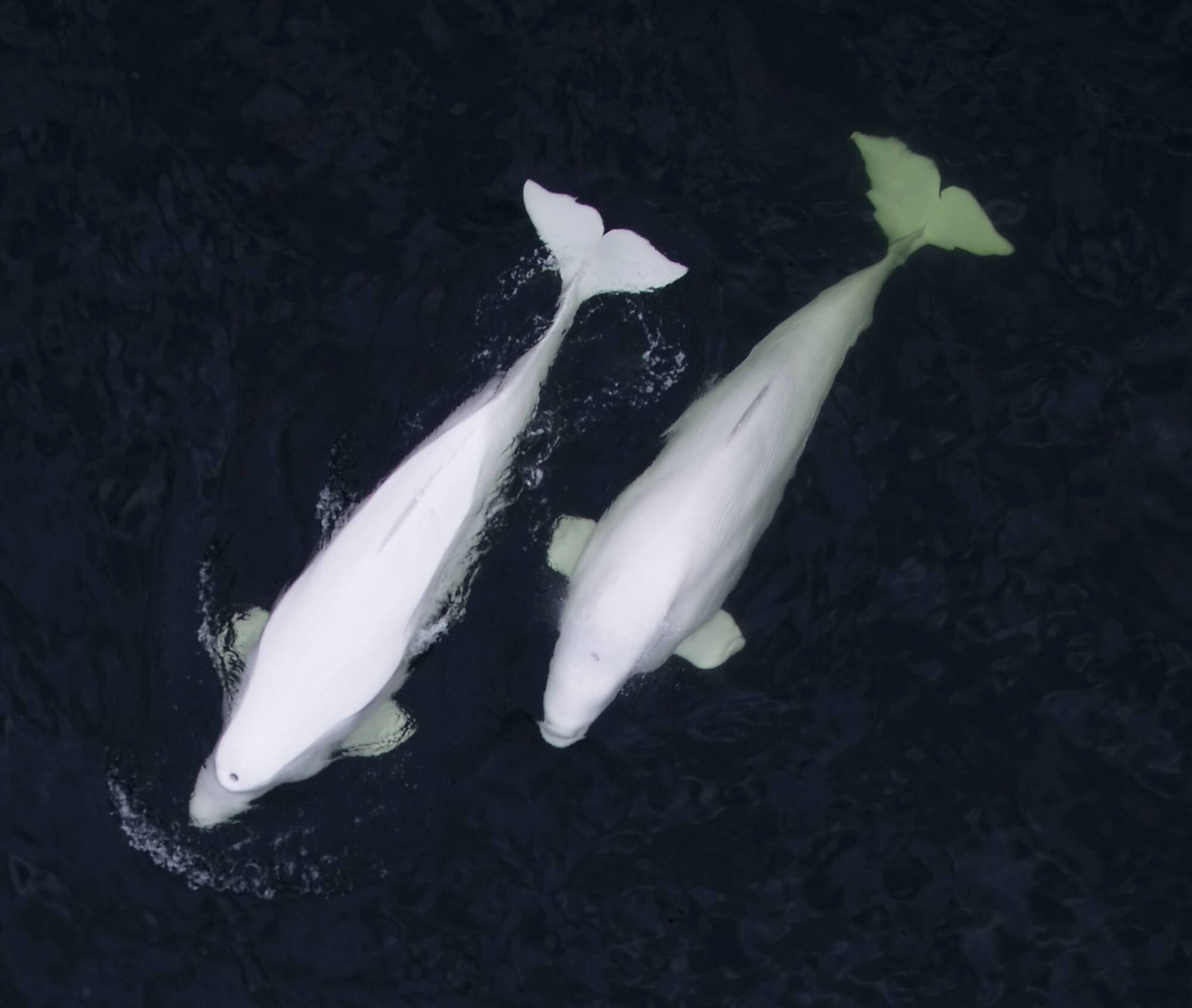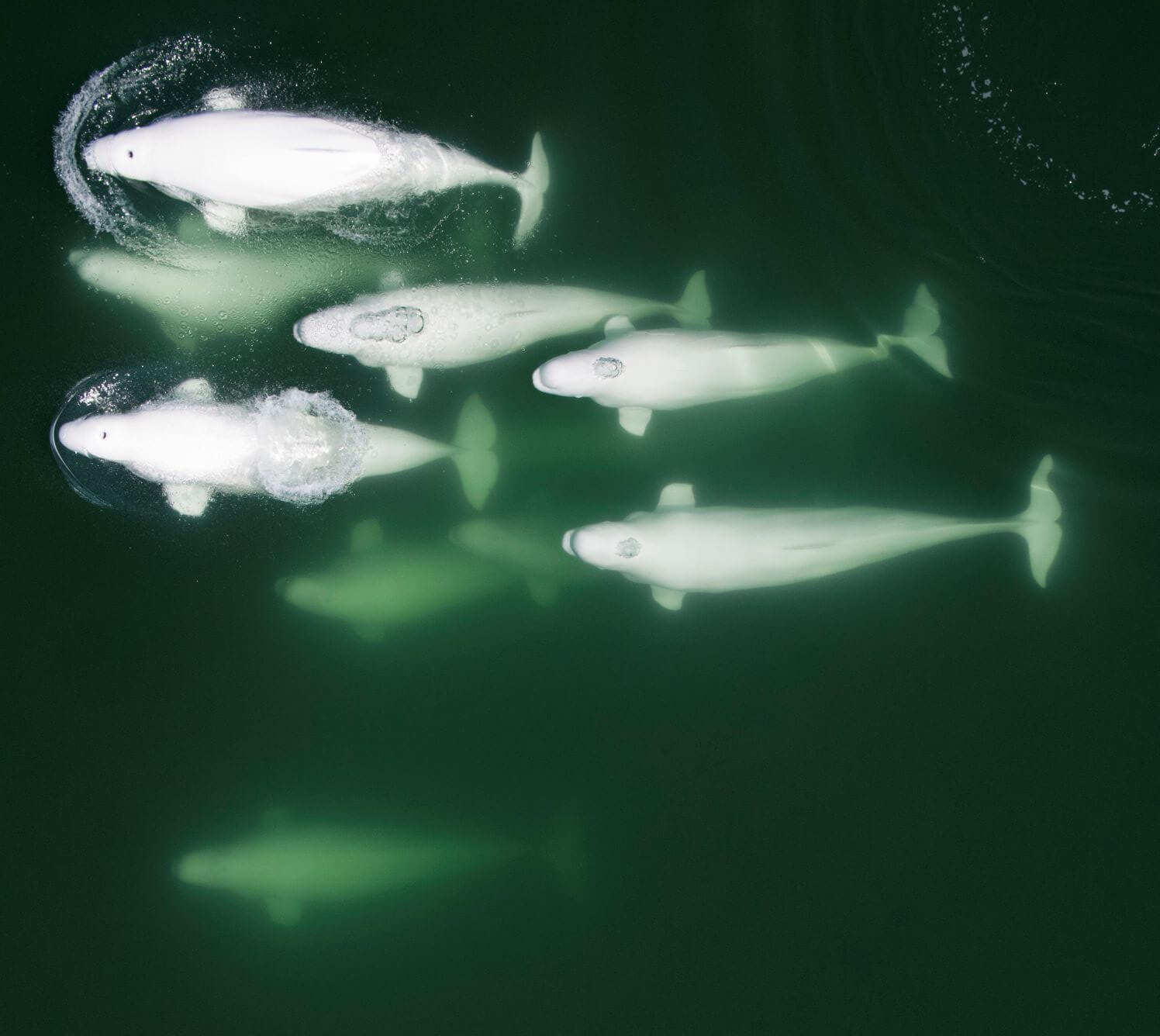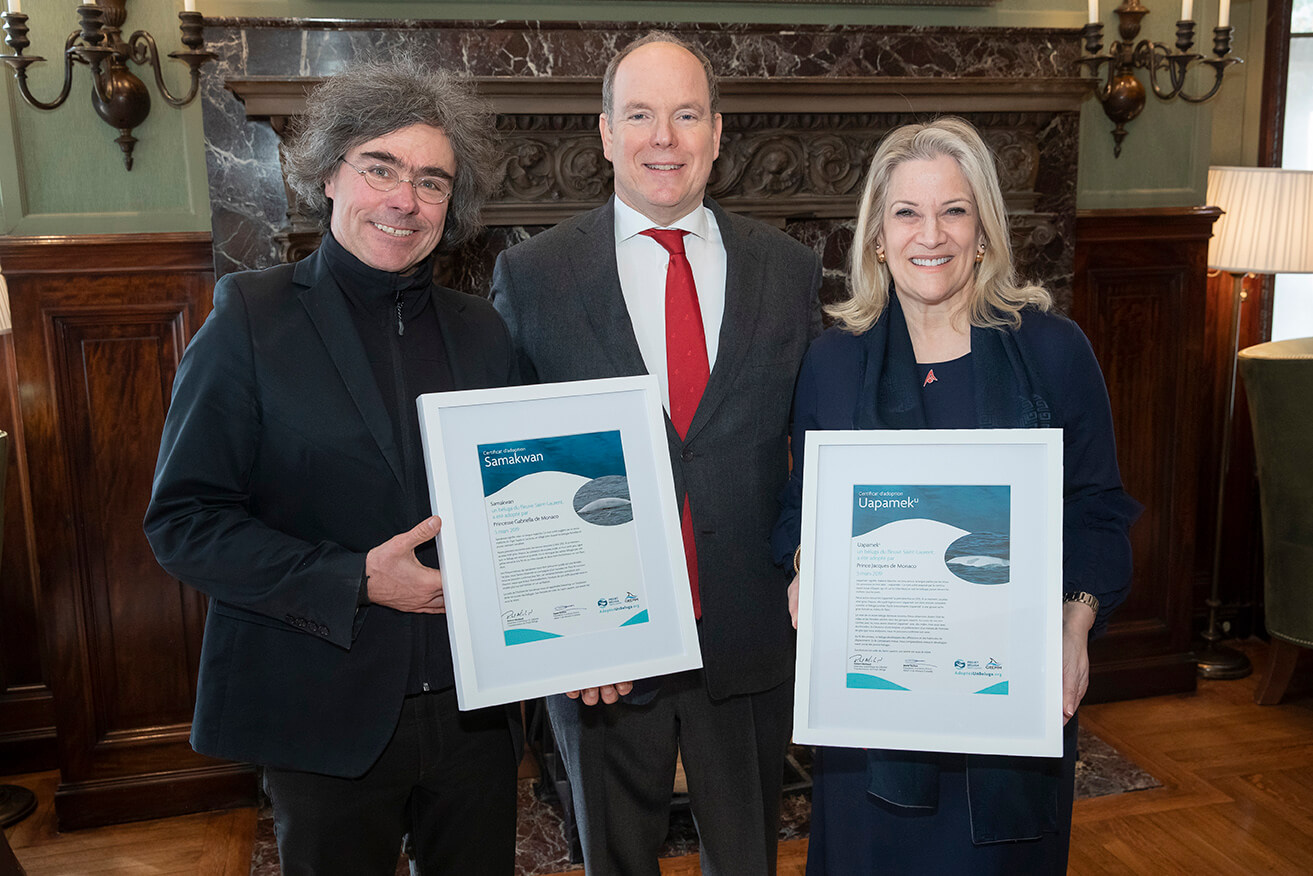Montréal, March 5, 2019: In the presence of His Serene Highness Albert II, Sovereign Prince of Monaco and several directors of the Prince Albert II of Monaco Foundation (Canada), foundation president Diane Vachon announced a $150,000 grant to the Group for Research and Education on Marine Mammals (GREMM). This sum will help fund an innovative research project on St. Lawrence belugas called “A Health Chart for Belugas”.
“The Prince Albert II of Monaco Foundation (Canada) is pleased to continue the Prince’s commitment to the protection of biodiversity. The St. Lawrence beluga is emblematic of the country and every effort must be made to better understand them,” stated Diane Vachon.
The new project being launched by GREMM links for the first time various physical, physiological, toxicological and genetic parameters to the history of individuals that have been photo-ID’d and tracked for decades. The three-year project is expected to help identify and better understand the factors limiting the recovery of the endangered St. Lawrence beluga population. The multifaceted nature of this project will make it possible to cross-analyze individual and population data.
GREMM Scientific Director Robert Michaud emphasizes the importance of this new partnership: “This essential support enables us to carry out an ambitious project that will foster the kind of progress needed for the conservation of the St. Lawrence beluga.”
Drone-based photogrammetry is already used for killer whales and grey whales. However, it is still in its infancy for belugas. Thriving on challenges, GREMM combines the techniques of photogrammetry and photo-identification. The beluga is thus simultaneously photographed from the side and from above in order to be able to link collected information to an individual known to researchers and thus be able to track the evolution of its physical condition throughout a given season or over several years.
Biopsies represent the third component of the project. In a tricky manoeuvre executed by the research team, the beluga is photographed from two angles while another researcher collects from the animal’s flank a small amount of fat for analysis. In addition to being used for physiological, genomics and contaminant analyses, the biopsy will determine the sex of the individual as well as its genetic profile. At this point, the health chart truly begins to acquire its full meaning.
The first field season was completed in 2018. Robert Michaud is satisfied: “A number of technical adjustments needed to be made, but we can already appreciate the project’s enormous potential. The next few seasons of research are bound to be rich.”
Two Belugas for Prince and Princess
Upon announcing the two-year grant, H.S.H. Prince Albert II of Monaco received adoption certificates for two St. Lawrence belugas: Samakwan and Uapameku. These two whales were symbolically adopted by Prince Jacques and Princess Gabriella of Monaco. Consequently, they will be kept up to date of advances in the research being funded by the Canadian branch of the foundation. The belugas were named by members of the Innu community of Essipit and the Maliseet of Viger First Nation.
The symbolically-adopted belugas are from the Adopt a Belugacampaign, which funds scientific research on the white whales by providing the donor with a meaningful connection to an individual beluga known to researchers.







